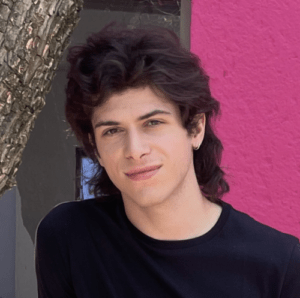2024 Competition
congratulations!
2024 BrainStorm Competition Research Award recipients
Dr. Pierre Champetier (Sorbonne Université, Paris Brain Institute)
Minerva Contreras (University of California-San Diego, Salk Institute for Biological Studies)
Dr. Pilleriin Sikka (Stanford University School of Medicine)
Recipients of $30,000 each in research funding
$10,000 Audience Choice Award Winner
MINERVA CONTRERAS
What is Brainstorm?
The BrainStorm Neuroscience Pitch Competition™ has a specific focus on funding for early-career researchers teamed with senior primary investigators, working on pilot studies to help them obtain grants for further research, with an additional strategic goal designed to incentivize the building of skills in translating complex neuroscience for a general audience through a pitch video. Winners of the Competition are guaranteed $30,000 in funding. One researcher also receives an additional $10,000 Audience Choice Award for receiving the most votes during online voting 10.7.24 – 10.13.24.
$100,000 IN TOTAL RESEARCH FUNDING!
$10,000 AUDIENCE CHOICE AWARD
The winning video earns an ADDITIONAL $10,000 Audience Choice Award, IN ADDITION to their $30,000 in research funding!
2024 RESEARCH AWARD WINNERS
Dancing through the night: “sleep melodies” in healthy aging and Alzheimer’s disease
pierre champetier, PhD
Sorbonne Université, Paris Brain Institute
Each night, our brain alternates between NREM (non-rapid eye movement) and REM (rapid eye movement) sleep, as if playing two different “sleep melodies,” or cycles, and contribute to memory consolidation. In the elderly, frequent awakenings interrupt these cycles, making it harder to retain information and increasing the risk of Alzheimer’s disease. By diving into the “waltzes” of NREM and REM sleep, this research seeks to unravel the structure of NREM and REM sleep in older adults and Alzheimer’s patients and may lead to interventions to improve sleep and memory in these populations.
The stars that shape our brain
Minerva Contreras
University of california, San Diego, Salk Institute for Biological Studies
Remember how easy it was for you to learn new things when you were younger, and how much harder it is now? The ability of the brain to change its circuitry is known as plasticity. When we are young, plasticity is high, and as we grow older plasticity decreases. This is because our brain’s plasticity is age dependent. This investigation focuses on the role specialized brain cells called astrocytes play in the brain’s plasticity, or ability to learn. This discovery could lead to new treatments for disorders like autism and schizophrenia, where brain plasticity is disrupted.
The Transformative Potential of Anesthesia-Induced Dream States
Pilleriin Sikka, PhD
Stanford University School of Medicine
Millions of people around the world suffer from anxiety disorders and PTSD. Although treatments are available, they don’t work for everyone, and we need better options. We are exploring a new method to help people with PTSD and other mental health issues. The idea is to use anesthesia to create a unique state of consciousness called “anesthesia-induced dreaming.” Early results suggest that these dreams can be significant and might help reduce PTSD symptoms.
thank you to our 2024 sponsors
H-E-B | The Rikli Foundation | Drs. Alice & Sergio Viroslav

